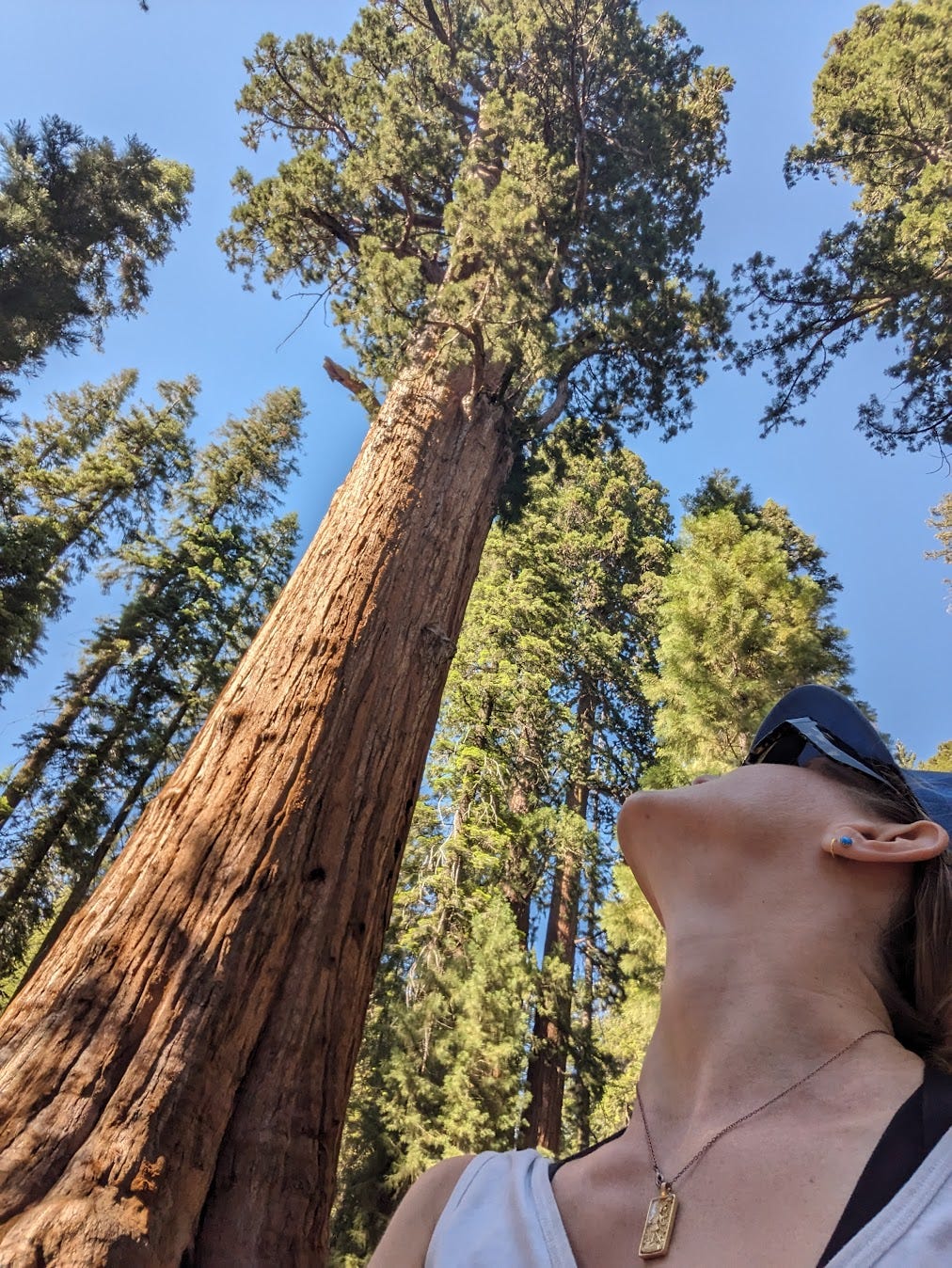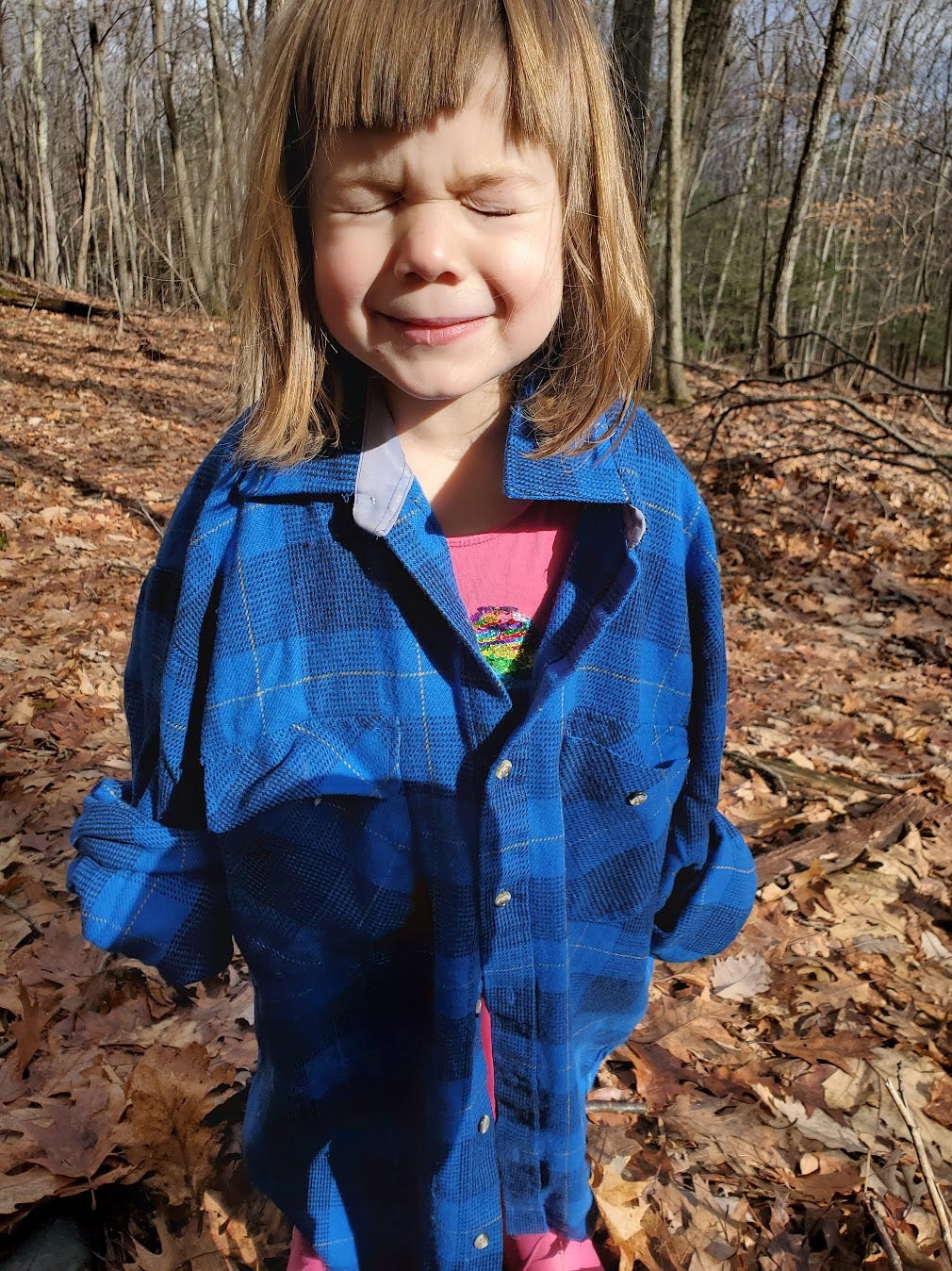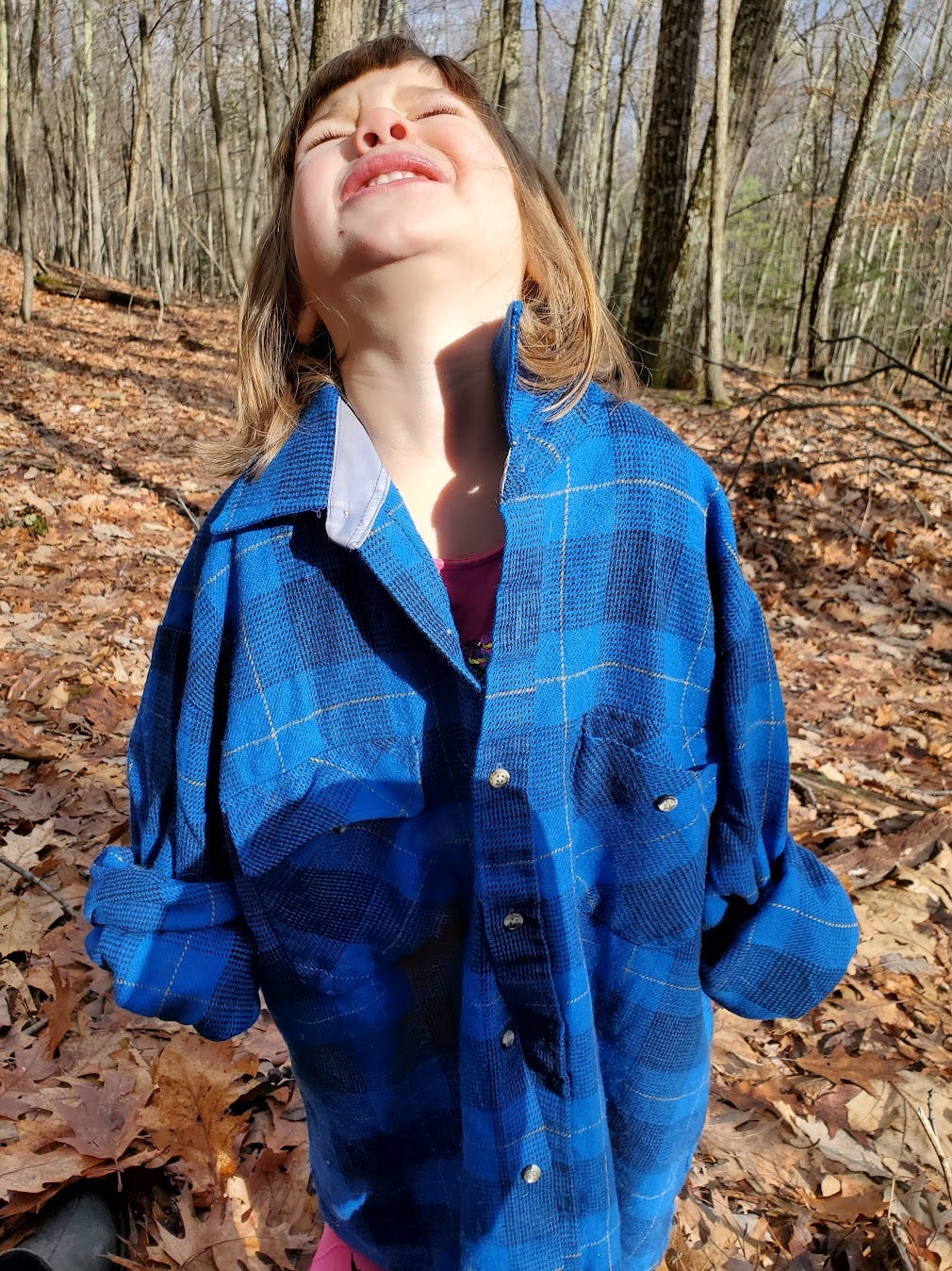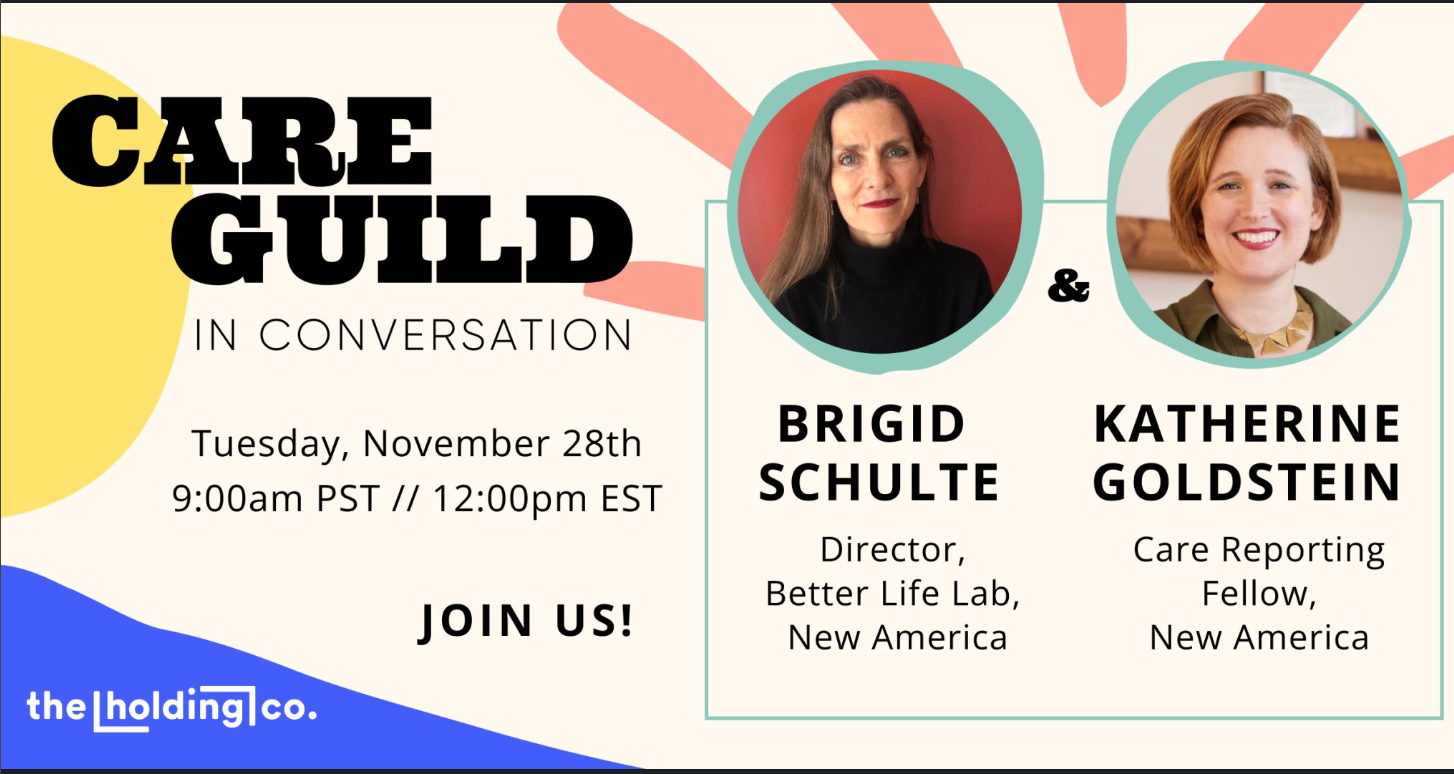How to Cope
“Mental health is not about feeling good or calm or relaxed…It’s about having feelings that fit the circumstances.”

Did someone forward you this newsletter? Subscribe for free here. However, paying membership is what makes this newsletter possible. Plus, you get audio newsletters, hangouts, and more. It starts at $7/mo. Join us!
As we dive headfirst into this holiday season, I know many of you may be confronted with the normal stressors this time of year brings, like tough family dynamics, political differences with loved ones, or marathon travel. This year may also feel even heavier with the weight of a brutal war in the Middle East and deep political conflicts over it at home. The online conversation about the Israel-Hamas war, paired with the sickening rises in Islamophobia and Anti-Semitism, says some very unsettling things about our frayed social fabric. So, for those of you who aren’t feeling wildly chipper about the state of the world right now, I want to share with you a wonderful edition of the newsletter, The Golden Hour, which is written by Anya Kamenetz. Anya is a seasoned education reporter that I interviewed earlier this year about how to not get overwhelmed by the problems facing public schools. Her new newsletter is “about living in the polycrisis— finding calm, hope, and joy in the moment as we deal, and help our children deal, with the very tough stuff happening in the world and expected in the future.”
Anya wrote this newsletter this summer before the start of the Israel-Hamas war, and it focuses on coping with climate emotions, but the framework she shares can be applied to a host of tough situations we are living through. (I love her use of the term "polycrisis"- there are truly so many difficult crises happening all the time.) I hope you enjoy this wisdom headed into American Thanksgiving. And you should definitely consider subscribing to The Golden Hour!
How To Cope
by Anya Kamenetz
This past weekend I started crying on the 405 in Los Angeles. This was bad, because I was driving and wearing my glasses, two things I don’t do very often. I blame this song by the indie-folk band Big Thief, a new-to-me meditation on the necessity of change, and of sadness.
Change like the wind
Like the water, like skin
Change like the sky
Like the leaves, like a butterfly
Would you live forever, never die
While everything around passes?
Would you smile forever, never cry
While everything you know passes?
I also blame being on a solo work trip for a week, missing my family; and taking a day to hike in Sequoia National Forest, where I walked among the world’s biggest giants, gloried in the white caps on the mountains, and also saw hillsides still scorched black from the fires a few years back; all while the radio hammered on: hottest days ever, Phoenix, Death Valley midnight, floods, death.

It’s a lot of feelings this summer. The heat and humidity, by itself, can make us depressed, lethargic, or aggressive (there’s research to back this up, if you needed it), without even taking in what it all means for the future, and for our less fortunate neighbors who are suffering terribly right now.
But one of the gifts of having kids is that I’m a lot less afraid than I used to be of big feelings. Little children sob, scream, and bubble over with glee on the daily, and it’s our job to take it all in and rock and ride it out. We co-regulate so our kids can eventually learn to self-regulate.


Somehow, once you get out of pullups, our culture seems averse to these kinds of displays, and to the uncomfortable feelings that drive them. The New Yorker just interviewed one of my favorite adolescent psychologists, Lisa Damour. I first got to know her when she reached out to me in June of 2020 to alert me that teenagers were suffering terribly with the lockdown and the stresses of the pandemic; she was hoping I could help her get this story on NPR, which we did. I also turned to her for invaluable perspective in my book, The Stolen Year.
Lately, as the adolescent mental health crisis continues to dominate headlines, she’s been speaking increasingly urgently and eloquently as always to let people, and especially parents, know that distress is inevitable, something to be skillfully navigated, not pathologized or avoided.
“Mental health is not about feeling good or calm or relaxed…It’s about having feelings that fit the circumstances you’re in and then managing those feelings well, even if those feelings are negative or unpleasant.”
It bears repeating: In psychologically healthy people, feelings fit the circumstances. For example, if you lose someone close to you, grief is an appropriate reaction. If a beautiful forest that you love is scarred by fire, grief, again, is an appropriate reaction.
Grief, then, is not something to be avoided at all costs. We might even want to make a dedicated space and time for it. In my spiritual tradition, Judaism, you mark the death of a loved one each year, called a yartzheit. And we are currently traversing a spot on the calendar that’s dedicated to collective mourning.
While we sit alone with our feelings, we do it in a physical space we create together, and I love the wisdom of this practice. (Here’s a link to sign up for a creative ritual, based on this holiday, Tisha B’Av.)
Three ways of coping
Last week I talked about the taxonomy of climate emotions; this week, I want to start to say a little bit about managing those emotions. The researcher Maria Ojala has identified three strategies used to cope with climate emotions:
- Problem-focused coping
- Emotion-focused coping
- Meaning-focused coping
This list is both-and, not either/or. All of these coping strategies have their purposes and times. In fact, I think they’re complementary to each other.
Meaning-focused coping
Meaning-focused coping is the mental reframing that we do in order to live with situations that can’t be resolved quickly or completely, or by ourselves alone.
Environmental psychologist Britt Wray has written:
“Meaning-focused coping can allow us to get through almost anything and persist with at least some degree of positivity. Meaning is the ultimate existential tool.” In a future post I’ll go more deeply into how I find meaning in my own imperfect understanding of the polycrisis—including the fact that my understanding is imperfect.
Problem-focused coping means taking action, which may include political activism, the kind of work you do, or making individual sustainable choices. This is something I’ll also discuss in a future post.
https://twitter.com/PeterOlivier/status/1681344075914412035 - can confirm
A 2022 study of young adults suggested taking action with others has a particular power to “buffer” the effects of climate anxiety and despair.
“Engaging in collective action may combat feelings of despair and helplessness and foster feelings of hope,” the researchers said. “Engaging in collective action can also result in feelings of empowerment and social support.”
When we take action with intention to make things better, the researchers say, we experience a sense of agency, which is known to protect mental health. And, we are connecting with others, gaining social support, which also protects mental health.
Emotion-focused coping was defined in Ojala’s paper as denying, distancing ourselves from, or suppressing climate emotions. Sometimes, that is necessary; we can’t be staring at IPCC reports every minute of every day.
But emotion-focused coping can also mean something very different, almost the opposite: leaning into and experiencing the emotions themselves, without trying to change them and make them go away.
For various reasons, this past year in particular, I’ve invested a lot of time into both conventional talk therapy and personal work that focuses on emotional release.
To release some of my emotions about climate change, aging deeper into my 40s, the pandemic, all the things, I’ve engaged in movement practices like 5 Rhythms and ecstatic dance; regular old dancing; running; spending time in nature; VR journeys; mindfulness; meditation tapes and body scans; journaling, sketching; singing and vocal improvisation in a group; and emotional release techniques like pounding pillows.
Some of these techniques are more on the side of emotional release (Let it out!), while others are more like emotional regulation (calm it down…). They can all be incredibly helpful and healing.
I found I like the movement-based techniques in particular because they emphasize not getting stuck in any one emotion. The music shifts; the beat shifts; the energy shifts; your body heats up, heart races, you hit a wall, break a sweat, calm down.
And here’s the thing I’ve found, the dessert at the end of the meal: moving with the hard emotions also puts you in touch with your joy.
Like the water, like skin
Thank you for sharing that beautiful newsletter with us, Anya!
For this week’s members-only thread, I want to find some positivity with you all, so I’ll be asking Double Shift members what YOU are most looking forward to this holiday season, even during difficult times. I’ll be sending it out Thursday evening East Coast time so we can lift each other’s spirits as we digest the Thanksgiving meal. To get in on this fun, become a member of The Double Shift, it starts at $7/mo.
Also, if you missed our members-only hangout on 11/16 where I talk about findings from my playbook, check your member podcast feed, as I've posted audio of our zoom conversation with Double Shifters there! (Need help getting your private audio feed installed in your favorite podcast player? email us at askthedoubleshift@gmail.com and we'll help you out.)

Join me and my colleague Brigid Schulte along with Courtney Martin from The Holding Co. to discuss my playbook to transform how America cares. It is open to all and will be a great virtual event! RSVP here.
Another great event on Nov 28TH at 3PM EST is from LUMO, who are friends of the Double Shift, is Mastering the Expecting Parent Experience: The Hidden Way Your Company is Losing the Hearts & Minds of Top Talent. RSVP here!